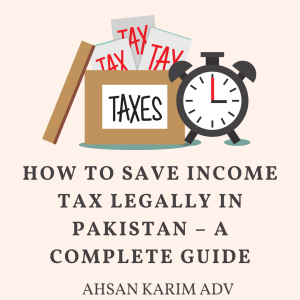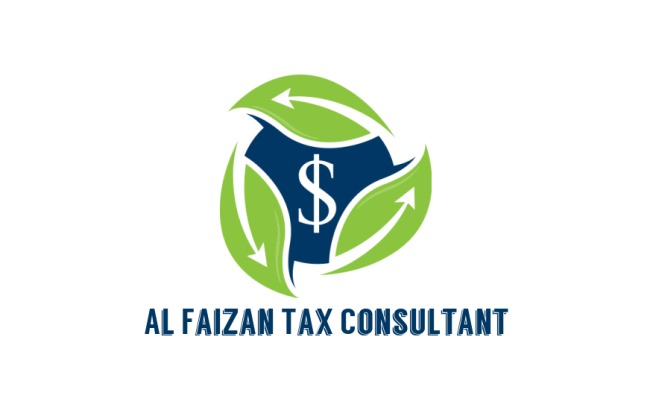How Can You Legally Reduce Income Tax in Pakistan? A Comprehensive Guide
Paying income tax is necessary, but there are legal ways to reduce your tax burden in Pakistan. The Federal Board of Revenue (FBR) allows many tax-saving options for individuals and businesses. If you plan smartly, you can save money while following the law.
This article explains all possible legal methods to save income tax in Pakistan in simple language.
How to Save Income Tax Legally in Pakistan – A Complete Guide

1. Become a Filer
The first and most important step is to become a filer. If you are a non-filer, you pay higher tax rates on bank transactions, property purchases, car registration, and many other things.
How to Become a Filer?
– Register on the FBR IRIS Portal (https://iris.fbr.gov.pk).
– Get an NTN (National Tax Number).
– Submit your annual tax returns.
– Once approved, your name will be added to the Active Taxpayer List (ATL).
Being a filer reduces taxes on:
1- Bank transactions
2- Property purchases and sales
3- Vehicle registration
4- Business payments
2. Use Tax Deductions on Salary Income
If you are a salaried person, you can claim tax deductions. The Income Tax Ordinance 2001 allows deductions on:
Contributions to Provident Fund
– If your employer deducts money for a Provident Fund, that amount is not taxed.
– This helps you save money while building long-term savings.
Zakat Donations
– Any Zakat donation to a registered charity is tax-free.
– Keep the receipts as proof to claim a tax deduction.
Medical Allowance
– Some companies offer medical allowances to employees.
– If your employer provides this, it is exempt from tax up to a certain limit.
Education Fee Deduction
– If you are paying education fees for children, you can claim a tax credit.
3. Invest in Government-Approved Schemes
The government allows tax benefits on certain investments. If you invest in these, you pay less tax legally.
Pension Funds
– If you invest in an approved pension fund, you can reduce taxable income by 20 percent.
Stock Market Investments
– Investing in the Pakistan Stock Exchange (PSX) gives tax benefits.
– If you hold shares for more than four years, no capital gains tax is applied.
Mutual Funds
– Certain mutual fund investments qualify for tax exemptions.
– Check with a financial advisor to choose the best tax-saving funds.
4. Tax Savings for Businesses and Freelancers
If you own a business or work as a freelancer, you can reduce tax legally.
Claim Business Expenses
Businesses can deduct expenses from taxable income. Some allowed expenses include:
– Rent of office or shop
– Utility bills (electricity, gas, internet)
– Employee salaries
– Travel and transportation costs
– Marketing and advertising expenses
Make sure to keep proper receipts to claim these deductions.
Freelancers Can Register as a Business
If you work on Upwork, Fiverr, or other platforms, you can register as a small business.
– This helps reduce tax rates.
– You can also deduct business expenses like internet bills, laptops, and workspace rent.
5. Tax Benefits on Property Investment
Real estate is a popular investment in Pakistan. Some smart ways to save tax include:
Buy Property as a Filer
– Filers pay lower tax rates when buying or selling property.
– Non-filers pay double the tax on property transactions.
Rental Income Tax Deduction
– If you rent out property, you can deduct maintenance costs before paying tax.
– Keep receipts of repair and renovation expenses.
Capital Gains Tax Exemption
– If you hold a property for more than four years, you do not pay Capital Gains Tax (CGT).
6. Tax Savings on Agricultural Income
In Pakistan, agriculture income is tax-free under certain conditions.
– If you own agricultural land, income from crops, dairy farming, or livestock is exempt from federal tax.
– However, you must pay provincial taxes in some cases.
Farmers can also claim tax deductions on:
– Fertilizers and seeds
– Machinery and equipment purchases
– Farm labor salaries
7. Get Exemptions on Foreign Remittances
If you receive money from abroad, it is not taxed in Pakistan.
– If your family members send remittances, it is 100 percent tax-free.
– You must receive the money through official banking channels.
– Keep bank records to prove the source of income.
8. Use Tax Amnesty Schemes
The government offers tax amnesty schemes from time to time. These schemes allow people to declare hidden income at lower tax rates.
Check FBR announcements to see if a new amnesty scheme is available.
9. Tax Benefits for Senior Citizens and Disabled Persons
If you are over 60 years old, you get a 50 percent tax reduction on your taxable income.
Disabled persons also get special tax exemptions. You must show a disability certificate to claim this benefit.
10. File Tax Returns on Time
Many people do not file tax returns because they think it is complicated. But if you file tax returns, you can get:
– Refunds on extra taxes paid
– Lower tax deductions on bank transactions
– Legal protection from penalties
Even if your income is low, file tax returns to stay in the system and enjoy benefits.
Final Thoughts
There are many legal ways to save income tax in Pakistan. The best methods include:
– Becoming a filer
– Using tax deductions
– Investing in tax-exempt schemes
– Keeping proper records of expenses
– Using government-approved exemptions
If you plan wisely, you can reduce your tax burden while staying within the law.
Important Note-Above article by Ahsan Karim Advocate high court has been written for common men, i have explained just general rules for saving tax legally and rules of FBR may change any time, so always consult your tax advisor for latest updates and professional advice for more technical methods for saving income tax legally in Pakistan. Do read my following article too;
What are the Benefits of Filing Tax Returns in Pakistan?

I H.Dr Ahsan Karim is an advocate high court and old Ravian. I did my LLB from Punjab University Lahore in 2002. I am working as webmaster and social media manager too in Al-Faizan Tax Consultant. I have written more than 7000 articles on various topics.
